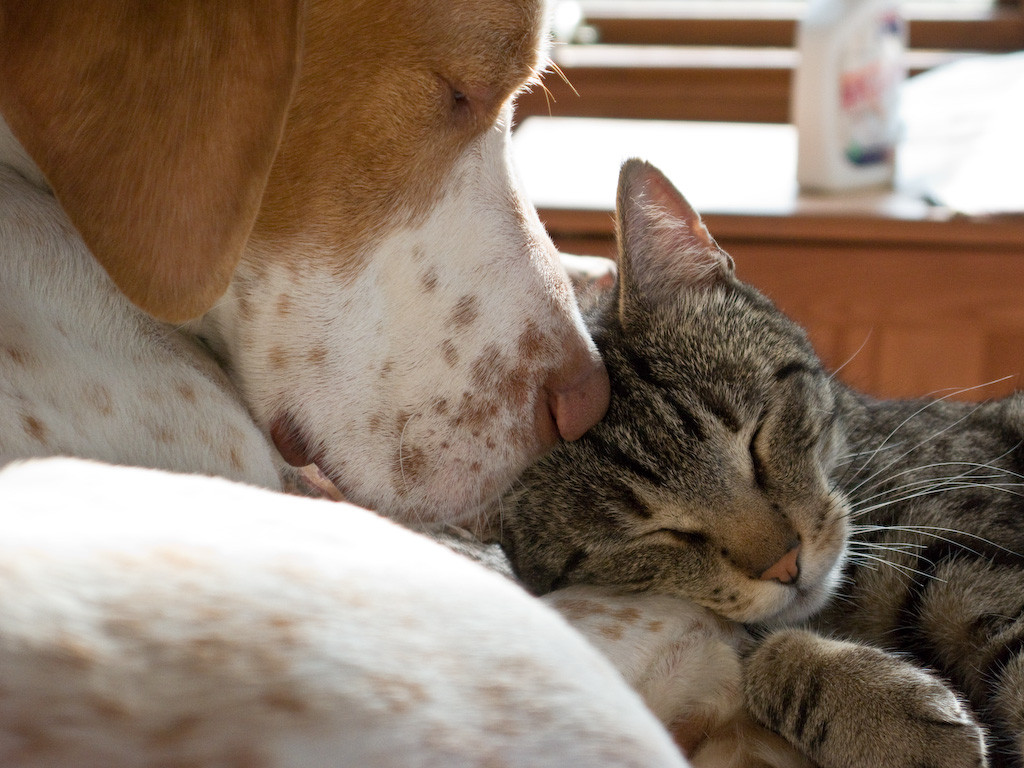The age-old question of whether cats or dogs reign supreme in the intelligence department has fueled countless debates among pet lovers. Dogs are often lauded for their trainability and responsiveness to commands, while cats are admired for their independent nature and hunting prowess. But when it comes to which species is truly “smarter,” is there a definitive answer? Scientists have delved into the intricacies of animal brains to explore this very question, and the findings might surprise you.
Neuron Count: The Brain Cell Tally
Neuroscientist Suzana Herculano-Houzel, seeking to understand animal intelligence through a biological lens, pioneered a method to count neurons in animal brains. By liquefying brain tissue, her team was able to accurately tally the number of neurons, the fundamental units of information processing in the nervous system. Their research focused on the cerebral cortex, the brain’s outer layer associated with higher-level cognitive functions. In a study published in Frontiers in Neuroanatomy, they compared the brains of various carnivorous mammals, including cats and dogs.
 Herculano-Houzel disclosed that she kept her biases out of the research, but said her dog, Mielina, is a great example of why dogs are smarter than cats. Photo by Suzana Herculano-Houzel
Herculano-Houzel disclosed that she kept her biases out of the research, but said her dog, Mielina, is a great example of why dogs are smarter than cats. Photo by Suzana Herculano-Houzel
The groundbreaking technique, initially developed to count neurons in the human brain, involves transforming brain tissue into a soup-like consistency, leaving behind only the nuclei of neurons. This “brain soup” allows for a precise count of these crucial brain cells. Herculano-Houzel’s team discovered that dogs possess significantly more cortical neurons than cats – approximately 530 million compared to around 250 million in cats. To put this into perspective, the human cortex boasts a staggering 16 billion neurons. This neuron disparity led Herculano-Houzel to suggest a potential cognitive advantage for dogs, stating, “Then the logical implication is that, yes, dogs are much more capable than cats.”
Beyond Brain Size: The Nuances of Animal Intelligence
However, the scientific community cautions against equating neuron count with a simplistic measure of overall intelligence. Brian Hare, a dog cognition expert and founder of Duke University’s Canine Cognition Center, emphasizes the complexity of intelligence, arguing that comparing species directly is akin to asking whether a hammer is a better tool than a screwdriver. Each species, he points out, has evolved unique cognitive strengths tailored to their specific ecological niches and survival needs.
Kristyn Vitale Shreve, a cat cognition and behavior researcher at Oregon State University, further elaborates on this nuanced perspective. She explains that intelligence exists on a spectrum, varying not only between species but also within different domains of cognition. For instance, cats exhibit exceptional hunting intelligence, while dogs may excel in social cognition and cooperation. Humans, on the other hand, demonstrate advanced mathematical and abstract reasoning abilities. Therefore, judging “smartness” requires considering the specific skills and challenges relevant to each species.
 Regardless of how many neurons dogs and cats have, they
Regardless of how many neurons dogs and cats have, they
Different Kinds of Smart: Hunting Prowess vs. Social Skills
When we consider specific cognitive abilities, the differences between cats and dogs become even clearer. Cats, as solitary hunters, have evolved remarkable skills in stealth, agility, and independent problem-solving for tasks like hunting prey. Their intelligence is geared towards self-sufficiency and navigating complex environments on their own. Dogs, descended from wolves, are inherently social animals with a strong pack mentality. Their intelligence shines in communication, cooperation, and understanding social cues, making them highly trainable and adept at working alongside humans.
Research into animal cognition is continually evolving, and direct comparisons between cat and dog intelligence are still limited. Vitale Shreve notes the challenges in studying cats, highlighting their individual personalities and the perception that they are less trainable, which can hinder research efforts. Developing standardized testing methods that fairly assess the cognitive abilities of both species remains an ongoing endeavor.
Conclusion: Appreciating Diverse Intelligences
Ultimately, the question of whether cats are smarter than dogs is not about finding a single winner. Brain science, particularly neuron count studies, offers valuable insights into the biological underpinnings of cognition. While dogs may possess a higher number of cortical neurons, intelligence is a multifaceted concept that encompasses a wide range of abilities. Cats and dogs have evolved different kinds of intelligence, each perfectly suited to their unique lifestyles and evolutionary paths. Instead of ranking them, perhaps the most intelligent approach is to appreciate and celebrate the diverse cognitive strengths of both our feline and canine companions. As Herculano-Houzel wisely advises, “Please love your cats and dogs alike as much as you want. Regardless of how many neurons they have.”
